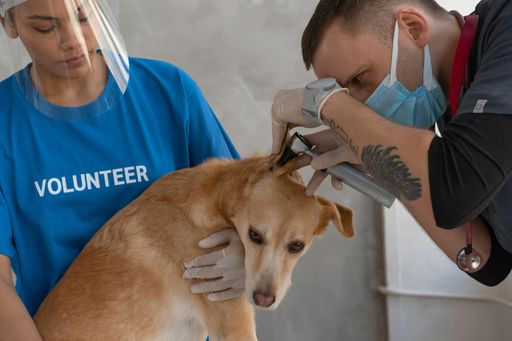As a pet parent, you probably know that advocating for your furry companion means providing the highest quality health care so that they can live a comfortable and happy life.
Advocating for your pet builds trust between you two as you do your best to protect it from any injuries, other animals and people. Putting the physical and emotional well-being of your pet first and maintaining its health should be your top priority as it’s the only way of setting the pet up for success.
In this article, we offer a small pet parent’s guide in advocating for better-informed pet health care.
Choose Pet Insurance
One of the most important decisions when becoming a pet parent is considering pet insurance policies. Many pet parents wonder what does pet insurance cover and whether it’s worth it. However, good insurance coverage can take away your worries if an accident or serious illness happens to your pet and if you’re suddenly faced with unplanned veterinary visits, huge medical bills, and treatment expenses.
If you read through what is included in most insurance policies, you will understand that there are a lot of things that can go wrong. Knowing that you are prepared for whatever life throws your way will put you at ease and allow you to focus on spending more quality time.
Provide Mental and Physical Simulation
You don’t have to be an animal expert to understand that your pet needs more than just food and water to thrive. Pets need physical exercise and mental stimulation so it’s crucial that you keep this in mind as lack of it can lead to behavioral problems and stress.
In addition to this, it goes without saying that your pet needs to get an annual wellness exam by a veterinarian, including core vaccinations.
As your pet’s advocate, conduct your own little research and figure out what level of mental, physical health, or even vaccination is necessary for your furry friend and then discuss this with your trusted veterinarian as a good preventive measure.

Train for Separation
For many family pets, being apart from their owners is quite the challenge. If your four-legged friend has separation anxiety, you may notice some typical behavioral changes such as excessive barking or howling, increased chewing on objects, change in appetite, or other destructive behaviors that were not common before.
Just like children, pets thrive on fixed routines. Leaving and picking them up, or coming home at roughly the same times each day, can help your four-legged family member adjust to the change and help reduce the dog or cat's separation anxiety.
Schedule fixed times for play with your dog or cat and reward them for their good behavior. A treat here and there, along with verbal praise, can go a long way. Taking your dog for a walk or playing an interactive game with your cat before leaving the house can also be a calming strategy.
By being calm, you set the tone for your four-legged friend, who perceives and follows you as a leader. If you suddenly have to leave and don’t have time to go for a long walk or play games, a tip is to try to give them their favorite toy to keep them stimulated for a while. Keep in mind that a dog, for instance, should not be alone for more than 4 hours a day.
By following these tips above, you can alleviate your dog or cat's separation anxiety and make them feel more secure being alone at home.

Outdoor Parties and Gatherings
Most of us love going out to barbecues, parties and festivals and oftentimes we like taking our pets with us. However, since our pets are unable to speak up for themselves, we must think about whether such outings are comfortable for them, even if it means leaving the event.
When you notice that your pet has a hard time focusing, and acts restless or overwhelmed, leave the setting and try to remember to stay for a shorter period next time when you plan on being in such an environment. Ideally, as a true advocate, it is best to leave the event before your pet shows signs of hyperactivity and nervousness.
Final Thoughts
If you’ve set your sights on being the best advocate for your pet, you need to get informed about its basic health care needs and promote its interests.
Finding the best pet insurance, keeping them safe with the best health care, physical and mental needs, and thinking of how different environments can affect them is a sure way of bonding with your furry friend and increasing their trust in you as its pet parent.



















